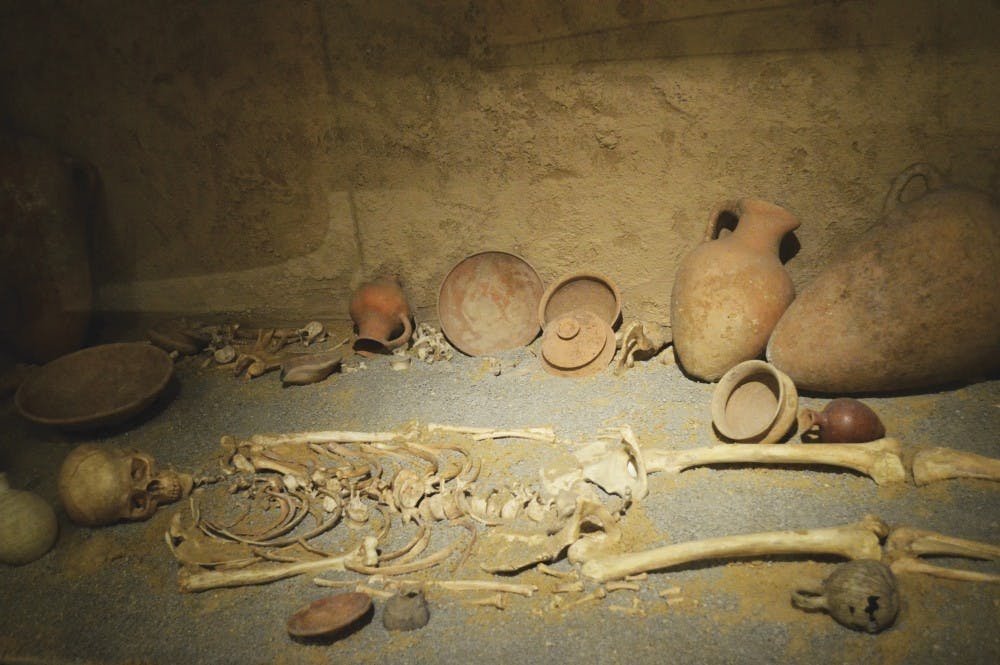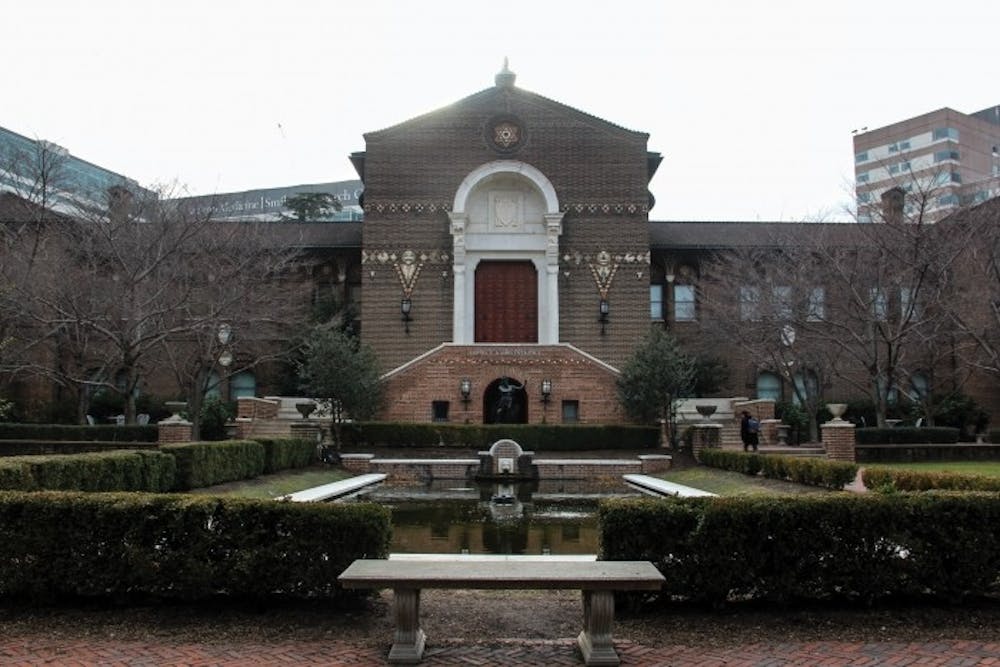
One of the new minors, Archeological Science, only has seven declared students.
Credit: Jashley BidoThe College of Arts and Sciences introduced four new interdisciplinary minors in the fall of 2016. However, for a variety of reasons, only a handful of students have pursued a minor in these recently-developed programs.
The new minors include Archaeological Science, East Central European Studies, Law and Society, and Medical Sociology. Despite the low number of students who have declared a minor in these subjects, those who have say that the programs present unique opportunities to bridge diverse disciplines.
Only seven students so far have declared the Archaeological Science minor, which explores the scientific techniques used in archaeology and is offered in the School of Arts and Sciences in collaboration with the Penn Museum.
Among the handful of students is College senior Braden Cordivari, who said that he values the unique skill sets he developed through the program.
“An archaeological science degree is a rare thing for undergraduates, and it’s a really valuable way to be able to show that you’re learning a specific skill set and you’re not just learning archaeology,” Cordivari said. “Not everybody gets to have the kind of lab exposure and really high quality and high tech experience.”
“What we teach is really interdisciplinary. We are really bridging the natural sciences with the humanities and social sciences,” said Marie-Claude Boileau, director of the minor program.

The minor in Archeological Science is offered in through the College of Arts and Sciences thanks to a collaboration with the Penn Museum.
Associate Dean of the College and Director for Academic Affairs Kent Peterman said the relatively low enrollment in a minor is not unusual.
“It usually takes a few years until students catch on and figure out how to incorporate [new minors] into a full program of studies,” he added. “I would caution against thinking of majors or minors as products for sale, for which we measure performance in terms of units sold.”
Associate professor Julia Verkholantsev is the director of the East Central European Studies minor program, which is offered through the Russian and East European Studies department. She said the minor was created to allow students to study Eastern and Central Europe countries separate from Russia.
While only two students have declared the East Central European Studies minor so far, several more are considering it, Verkholantsev said.
“Some students are interested in Russian, but they are mostly interested in the area that is Russia and the central European countries,” Verkholantsev said.
“My interest in the [East Central European Studies] minor comes from my heritage,” said College freshman Nicole Vereczkey, who is Hungarian.
She added that the minor is a good complement to her international relations major, allowing her to focus on a specific region.
File Photo
Two new minors in the Sociology department — Law and Society and Medical Sociology — also explore connections between disciplines.
According to the program description, the Law and Society minor focuses on “factors that affect variations in the law, as well as how those variations affect individuals and populations differently.”
The Medical Sociology minor provides a “sociological perspective on medicine” by analyzing societal factors that lead to illness and examining the relationships between patients and medical professionals.
Both minors require introductory sociology courses as well as electives in areas such as Legal Studies, Political Science, and Anthropology.
A year after these four minors were introduced, academic programs in the College continued to develop. In the fall of 2017, Penn added minors in Digital Humanities and Global Medieval Studies.
The Digital Humanities minor applies technical skills to solve problems in the humanities, and the Global Medieval Studies program unites 11 different departments to explore the Medieval period in different regions.
Verkholantsev, who also supervises the Global Medieval Studies minor, said while students pursuing the minor are “all passionate, and it’s really rewarding to talk to them," it was difficult to get the word out about the Global Medieval Studies minor because it is not housed in a specific department.
She added that because it is a new program, it also lacks “continuity and tradition.”
Verkholantsev said she had initially applied for a Global Medieval Studies major as well, but the request was denied due to uncertainty about student interest. She said she was confident, however, that a major would be added in the future.
According to Peterman, there are no plans to add new majors or minors this semester. There is, however, an “active discussion” regarding developing a new minor in Environmental Humanities, which is scheduled to be made available to students in the fall of 2018.
The Daily Pennsylvanian is an independent, student-run newspaper. Please consider making a donation to support the coverage that shapes the University. Your generosity ensures a future of strong journalism at Penn.
Donate




